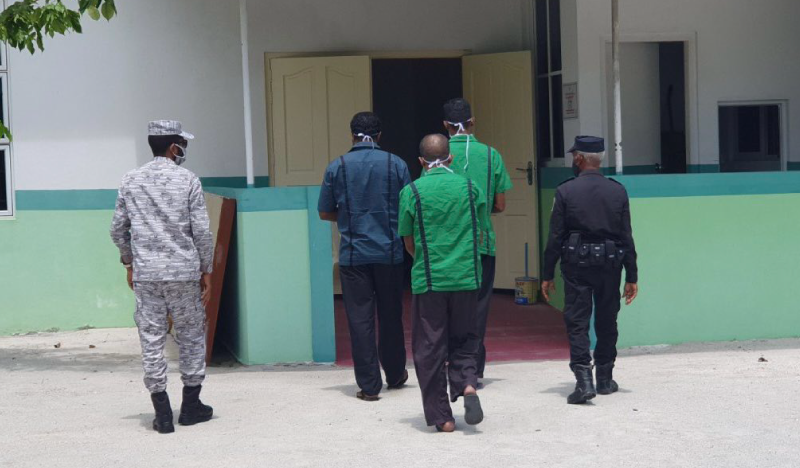HRCM Pushes for Legal Clarity on Prisoners’ Grooming Policies

Photo: Maldives Correctional Service
The Human Rights Commission of the Maldives (HRCM) has proposed significant reforms to prisoner grooming regulations.
ފިރިހެން ޤައިދީންނާއި ޖަލުގައި ބަންދުކުރެވޭ މީހުންގެ ބޯކޮށުމާގުޅޭ ޕޮލިސީ ރިވިއު
— HRC of the Maldives (@hrcmv) October 8, 2024
PDF: https://t.co/qyxtfCbHM7 pic.twitter.com/xTimikNzBp
On Tuesday, HRCM publicised a set of proposed reforms in a policy review conducted in response to allegations that inmates who refuse to have their hair cut are being denied access to rehabilitation programmes and parole opportunities.
This move follows a review paper published by the HRCM’s legal and policy department that highlights concerns regarding the compulsory cutting of male prisoners’ hair and beards.
The commission has received several complaints, including one from a prisoner in Maafushi Prison who reported being forced to cut his hair against his will and another case where a prisoner was allegedly subjected to mistreatment during a forced haircut.
Article 8 (H) of the Code of Conduct for Prisoners mandates that male prisoners keep their hair no longer than two centimetres and their beards trimmed to a maximum of two inches. However, the Prisons and Parole Act does not explicitly require haircuts as a component of prison conduct, resulting in a legal ambiguity that the HRCM seeks to clarify.
The commission’s review asserts that there is no legal basis for enforcing haircuts as part of a prisoner’s conduct or linking it to disciplinary measures, rehabilitation, or parole decisions. The commission contends grooming should be voluntary and not impact a prisoner’s rehabilitation or parole prospects.
Consequently, the HRCM has proposed six key reforms:
- Abolition of Article 8 – the commission recommends removing Article 8 from the Code of Conduct, arguing that grooming should be a matter of personal hygiene, not mandatory enforcement.
- Voluntary haircuts – the regulations should be revised to ensure that hair and beard-cutting are entirely voluntary, with the decision resting solely on the individual, barring legitimate health concerns.
- Separation of Hygiene Punishment – personal hygiene should not be linked to morality or behaviour, nor should it affect participation in rehabilitation programmes or eligibility for parole.
- Protection of consent – a clear rule should be established that no prisoner’s hair or beard may be forcibly cut without their consent, except in cases where there is a health risk, with any grooming only conducted on the advice of prison health officers.
- Dignified treatment – if haircuts are necessary for health reasons, it must be done in a way that respects the prisoner’s dignity.
- Respect for religious beliefs – prisoners refusing to cut their hair or beards for religious reasons should have their beliefs respected and not be coerced into compliance with grooming standards.
The HRCM’s review also refers to international guidelines, such as the United Nations Mandela Rules, which emphasise treating prisoners with dignity, regardless of appearance.
The commission compared Maldivian policies with those of other democratic countries, many of which allow prisoners to choose their grooming practices as long as they do not pose health risks.
Following this review, the HRCM has urged relevant authorities to amend existing laws and regulations concerning prisoner grooming, advocating for a human rights-based approach to these practices.






